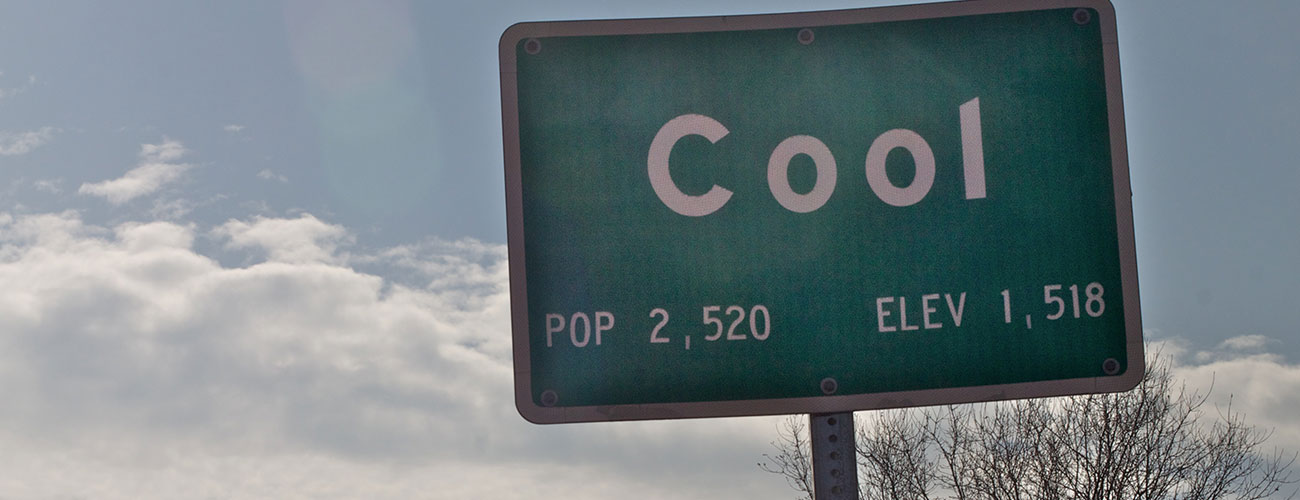Fans of Superman comics or Seinfeld know about “bizarros,” characters that are the exact opposite of more familiar characters. They say “goodbye” instead of “hello,” for example.
English has many “bizarro” words, used as opposites to traditional meaning, or even opposite to each other.
Let’s start with “cool,” which has a cool history. Its traditional usage means something of a lower temperature, but around 1947, according to The Concise New Partridge Dictionary of Slang and Unconventional English, “cool” took on the meaning of “relaxed, good, or modern,” especially as it related to jazz. From there, the beat generation co-opted the term to mean anything “in,” “hip,” fashionable. The Oxford English Dictionary traces the use even earlier to 1933, “Originally in African-American usage: (as a general term of approval) admirable, excellent.”
But “cool’s” first slang usage, according to the OED, traces to the 18th century, to Ireland or England, a noun meaning “A measure of butter varying in amount, but usually of about 40 lb” or “a container for storing butter.” We still use it to indicate an amount, but as an adjective, as in “he earned a cool thou on that deal.” That “cool” could also be an adjective meaning “excellent,” depending on whether the emphasis was on the amount or its wonderfulness. It doesn’t matter how you view it, because it’s all the same derivation.
Among other slang variations of “cool” are a truce between street gangs (the Bloods and the Crips never reached a cool), composure (she really blew her cool), lack of interest (she was cool to the idea of reading a slang dictionary), etc. etc.
“Hot” is the opposite of “cool,” but its first slang usage was also applied to music, and it’s older: It traces to 1866 to mean “excellent, used for describing music or musicians that create excitement,” according to Partridge, and it was used in jazz to mean “traditional and spirited, as opposed to modern” in the 1920s, Partridge says.
“Hot,” of course, also means stolen, as well as sexy and angry, among other things.
In the bizarro world of words, if you say “He’s a dope,” it’s not a compliment; if you say, “He’s really dope,” it is. The original “dope” was a “thick liquid or semi-fluid used as an article of food, or as a lubricant,” the OED says, and traces to the United States to the 19th century. That usage evolved to mean “a preparation, mixture, or drug which is not specifically named.” You can see where that is going: “Dope” was first used to mean a thick liquid prepared out of opium for smoking in the late 19th century, the OED says, and before too long came to mean any sort of addictive, opium-based drug.
At the same time, “dope” came to mean someone who was stupid, a simpleton. The OED traces that “dope” to 30 or 40 years before the opium “dope,” and they seem to have never completely merged: Even today, calling someone “a dope,” with an indefinite article, doesn’t imply drug use, merely stupidity.
But saying something “is dope” means it’s excellent. Partridge traces that usage to the rapper Chief Rocker Busy Bee in 1981, and says it “defines and sneers at society’s failures,” and “rejects the negative and promotes the positive in the ‘bad-as-good’ way.” (The OED credits the hip-hop artist Jimmy Spicer, but in the same year.)
The near-ubiquitous “awesome” first arrived on the slang scene around 1975, Partridge says, as “an informal variation of the conventional sense.” By that, Partridge means its conventional positive sense, indicating a sense of wonder or “awe.” But it’s another bizarro word: For most of its life, “awe” has been a negative thing. The original “awe,” the OED says, was from the ninth century, meaning “Immediate and active fear; terror, dread.” Its more common usage had biblical overtones, “Dread mingled with veneration, reverential or respectful fear,” the OED says, later transferred to things like thunderstorms or other natural occurrences, all negative.
Even today, most dictionaries do not list a positive definition for “awe.” When the United States launched its “shock and awe” campaign against Iraq, they weren’t expecting the Iraqis to stand, agape, in wonder at all the fireworks going on around them. No, “shock and awe” was formulated as a military campaign to gain “rapid dominance over an adversary by the initial imposition of overwhelming force and firepower.”
“Awesome,” though, has morphed away from “awe,” and the OED solidly blames Americans, with an etymological sniff. Starting in the 1960s, it says, “awesome” gained “weakened” colloquial senses, “overwhelming, staggering; remarkable, prodigious,” and in the 1980s gained “trivial use, as an enthusiastic term of commendation” as slang. Well, excuuuuse us.
Next week, we’ll look at the difference between “colloquial” and “slang.”
Hello for now.
Merrill Perlman managed copy desks across the newsroom at the New York Times, where she worked for twenty-five years. Follow her on Twitter at @meperl.

